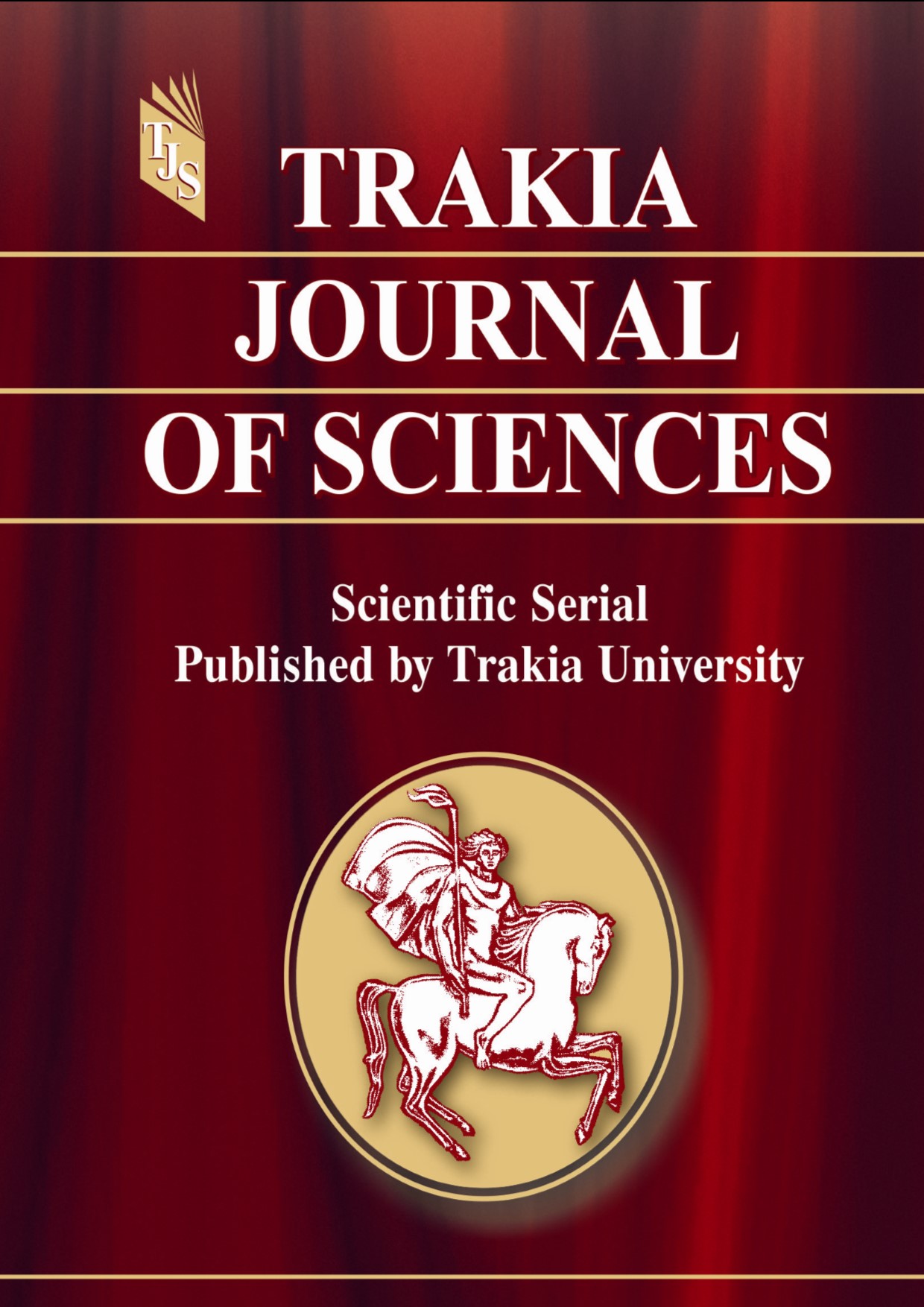PSYCHOSOCIAL RISKS AND THEIR IMPACT ON THE MENTHAL HEALTH IN HEALTHCARE WORKERS DURING A RECURRING WAVE OF COVID-19
DOI:
https://doi.org/10.15547/tjs.2025.02.008Keywords:
psychosocial risks, healthcare workers, mental health, pandemicAbstract
The purpose of the study is to prioritize psychosocial risk factors in healthcare workers during a wave of Covid-19. Methods: Cross-sectional survey was conducted among 665 health care workers from hospital, outpatient, and emergency care settings in 9 cities in Southern Bulgaria. The survey included 29 questions on psychosocial risks at work and 21 questions on self-rated manifestations of depression, anxiety and stress (DASS 21). Binary logistic regression was used to explore the association between depression, anxiety and stress with psychosocial risk factors. Results: Priority psychosocial risks include the lack of adequate training in an epidemic setting, insufficient experience in treating infectious patients, uncertainty about the implemented counter-epidemic measures, and poor communication within work teams when discussing problems and making decisions. The intensity of the workload, lack of recognition and uncertainty in the work performed have a significant influence on the mental health. There are other contributing personal factors, such as anxiety about patients' lives, anxiety about one's own health and safety, and that of one's relatives, and the conflict between work and social life. Some form of mental health disorder was identified in 40% of the healthcare workers. Conclusion: The results show the need for training sessions at all levels on safe and professional behaviour during a pandemic, improved management and communication in work teams, personalised interventions to support the mental health of workers.
References
Jong, T., Bos, E., Pawlowska-Cyprysiak, K., Hildt-Ciupińska, K., Malińska, M., Nicolescu, G., Trifu, A., Current and Emerging Issues in the Healthcare Sector, including Home and Community Care. Еuropean Agency for Safety and Health at Work (EU-OSHA) Publications Office of the European Union; European Risk Observatory Report, Luxembourg: 2014.
G. van den Heuvel, S., Roozebom, M.,Eekhout, I., Venema, A., Management of psychosocial risks in European workplaces: evidence from the Second European Survey of Enterprises on New and Emerging Risks. Еuropean Agency for Safety and Health at Work, (ESENER-2), 2018.
Di Tecco, C., Nielsen, K., Ghelli, M., Ronchetti, M., Marzocchi, I., Persechino, B., & Iavicoli, S., Improving Working Conditions and Job Satisfaction in Healthcare: A Study Concept Design on a Participatory Organizational Level Intervention in Psychosocial Risks Management. International Journal of Environmental Research and Public Health, 17(10): 3677, 2020.
Franklin, P. and Gkiouleka, A., A Scoping Review of Psychosocial Risks to Health Workers during the Covid-19 Pandemic. Int J Environ Res Public Health, 18(5):2453, 2021.
Valencia-Contrera, M. and Valenzuela-Suazo, S., Psychosocial risks: main threats to health care workers caused by the COVID-19 pandemic. Rev Bras Med Trab.,30;20(1):147-153, 2022.
De Kock, J. H., Latham, H. A., Leslie, S.J., Grindle, M., Munoz, S.A., Ellis, L., Polson, R., & O’Malley, C. M. (2021). A rapid review of the impact of COVID-19 on the mental health of healthcare workers: implications for supporting psychological well-being. BMC Public Health, 21(1):104, 2021.
Koren, H., Milaković, M., Bubaš, M., Bekavac, P., Bekavac, B., Bucić, L., Čvrljak, J., Capak, M., Jeličić, P., Psychosocial risks emerged from COVID-19 pandemic and workers' mental health. Front Psychol, 26(14):1148634, 2023.
Barros, C., Baylina, P., Fernandes, R., Ramalho, S., Arezes P., Healthcare Workers' Mental Health in Pandemic Times: The Predict Role of Psychosocial Risks. Safety and Health at Work, 13(4):415-420, 2022.
Moreno-Martínez, M., Feijoo-Cid, M., Fernández-Cano, M.I., Llorens-Serrano, C., Navarro-Giné, A., Psychosocial risk in healthcare workers after one year of COVID-19. Occupational Medicine, 74(1):37–44, 2024.
Henry, J.D., & Crawford, J.R. The short-form version of the Depression Anxiety Stress Scales (DASS-21): Construct validity and normative data in a large non-clinical sample. British Journal of Clinical Psychology, 44(2): 227–239, 2005.
Eurofound and EU-OSHA, Psychosocialrisks in Europe: Prevalence and strategiesfor prevention. Publications Office of the European Union, Luxembourg, 2014.
Senior Labour Inspectors Committee (SLIC), Labour inspectors' guide for assessing the quality of risk assessments and risk management measures with regard to prevention of psychosocial risks, 2018.
Montgomery, A., Panagopoulou, E., Esmail, A., Richards, T., Maslach, C., Burnout in healthcare: the case for organisational change. BMJ, 366:l4774, 2019.
Holmes, E.A., O'Connor, R.C., Perry, V.H., Tracey, I., Wessely, S., Arseneault, L., & Ballard, C., Multidisciplinary research priorities for the COVID-19 pandemic: a call for action for mental health science. Lancet Psychiatry, 7(6):547–560, 2020.
Petrie, K., Crawford, J., Baker, S.T.E., Dean, K., Robinson, J., Veness, B.G., Randall, J., McGorry, P., Christensen, H., Harvey, S.B., Interventions to reduce symptoms of common mental disorders and suicidal ideation in physicians: a systematic review and meta-analysis. ,6(3):225-234, 2019.

Downloads
Published
Issue
Section
License

This work is licensed under a Creative Commons Attribution-NonCommercial 4.0 International License.


